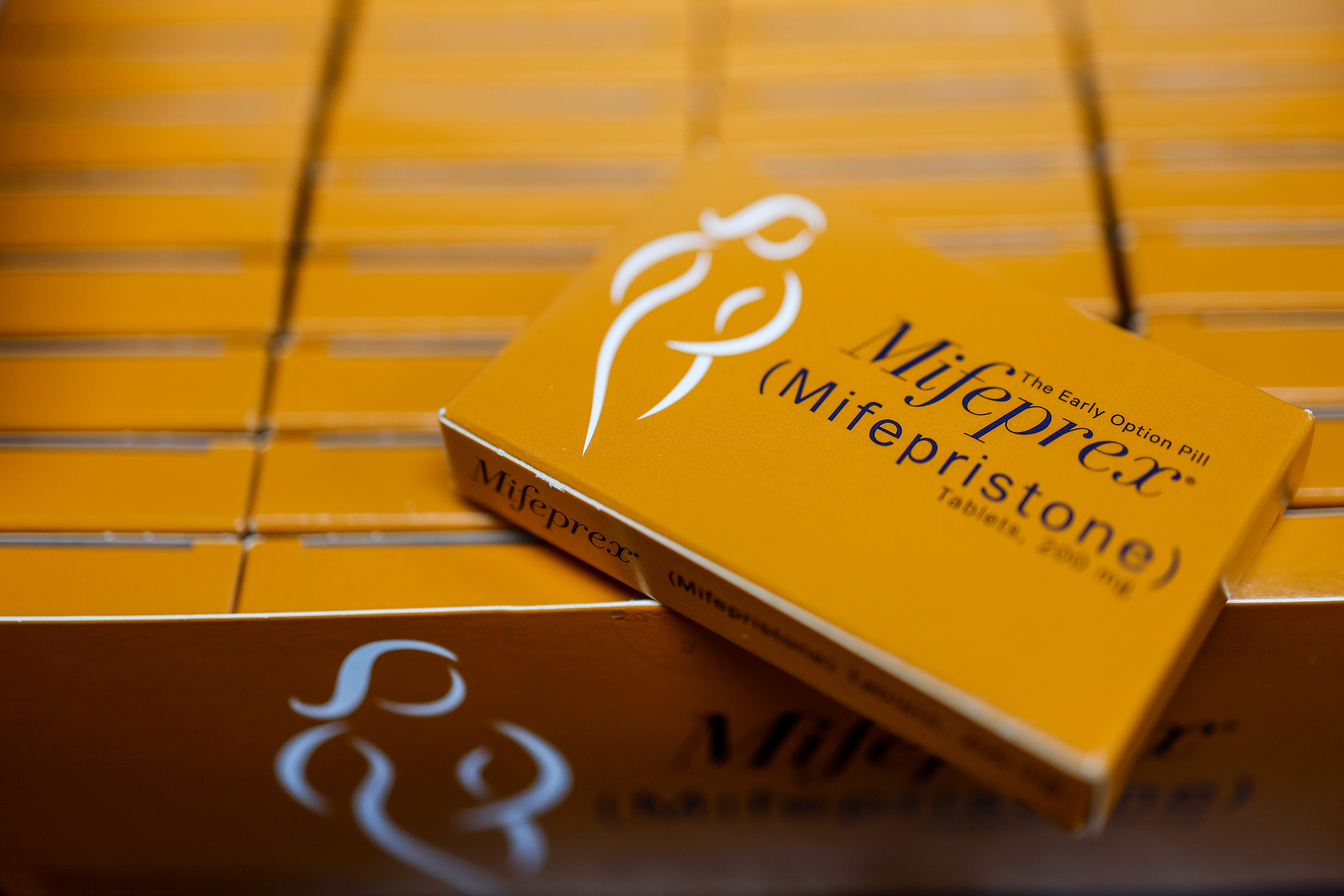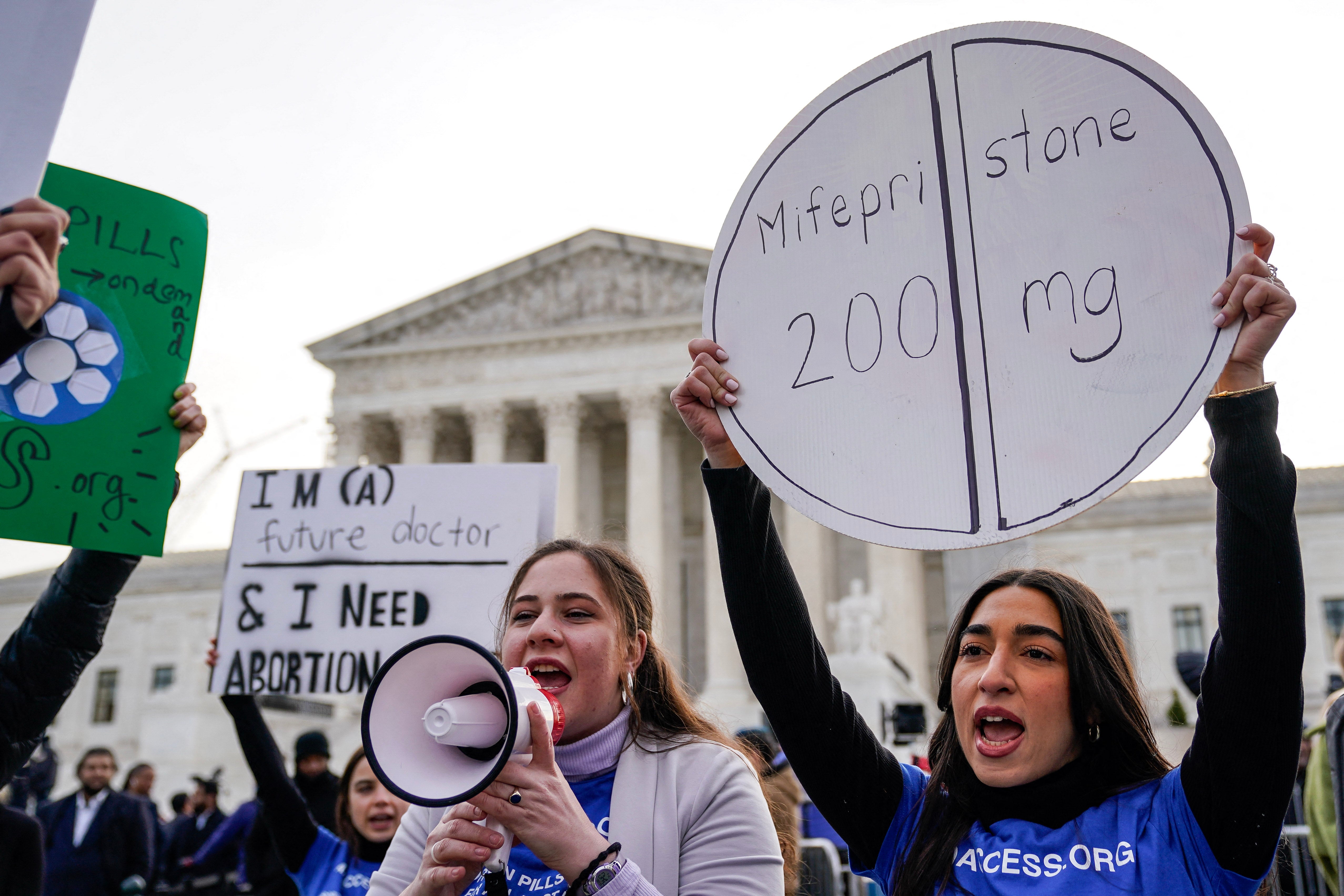Women resorting to unsafe measures like drinking and punching their stomachs to end pregnancies since fall of Roe
Women have reported drinking alcohol, hitting themselves in the stomach or inserting objects into their bodies
More women are resorting to unsafe measures to end pregnancies since the Supreme Court ruling two years ago which took away nationwide abortion access, a study has found.
Researchers discovered that reproductive-age women who reported trying to end pregnancies by themselves rose from 2.4 per cent to 3.3 per cent, before and after the court overturned the 1973 Roe v. Wade in June 2022.
The methods that women reported included eating herbs, drinking alcohol, hitting themselves in the stomach, inserting an object into their body and lifting heavy items, according to a study published in the peer-reviewed medical journal JAMA on Tuesday.
Some women then had complications that required medical attention, including pain, bleeding and a fever, the study said. In other cases, women had an in-clinic abortion or continued their pregnancy.
“Our data show that making abortion more difficult to access is not going to mean that people want or need an abortion less frequently,” Dr. Lauren Ralph, co-author of the study and epidemiologist at the University of California, San Francisco, told the Associated Press.

Some survey respondents reported using medications obtained without a prescription. Some took emergency contraception and the abortion pills misoprostol and mifepristone obtained outside the medical system.
Mifepristone is a safe-to-use abortion medication that was challenged in a Supreme Court case earlier this year. The nation’s highest court threw out the lawsuit last month, ending the challenge for the time being. However, some Republican lawmakers have already vowed to bring a new case, Axios reports.
Dr Grace Ferguson, an OB-GYN in Pittsburgh who was not involved in the research, said the study “[confirms] the statement we’ve been saying forever: If you make it hard to get [an abortion] in a formal setting, people will just do it informally.”

In the wake of Dobbs v Jackson, abortion has been banned outright with few exceptions in 14 states, all of which are Republican controlled. This means many people have been forced to carry out life-threatening pregnancies.
Breanna Cecil, 34, previously told The Independent that she was denied an abortion in Tennessee for a pregnancy that ultimately destroyed her ability to have children in the future.
“The state of Tennessee took my fertility from me,” Cecil told The Independent earlier this year. “[State lawmakers] took away my opportunity to have a family like my own biological family because of these horrible laws that they put in place.”
Others have been forced to travel hundreds of miles out-of-state to the nearest abortion clinic.
Residents of some southern counties would have to travel more than 700 miles, Axios reports. In June 2021, a year before Roe v Wade was overturned, residents of just 216 counties had to travel the same distance.
Join our commenting forum
Join thought-provoking conversations, follow other Independent readers and see their replies
Comments
Bookmark popover
Removed from bookmarks